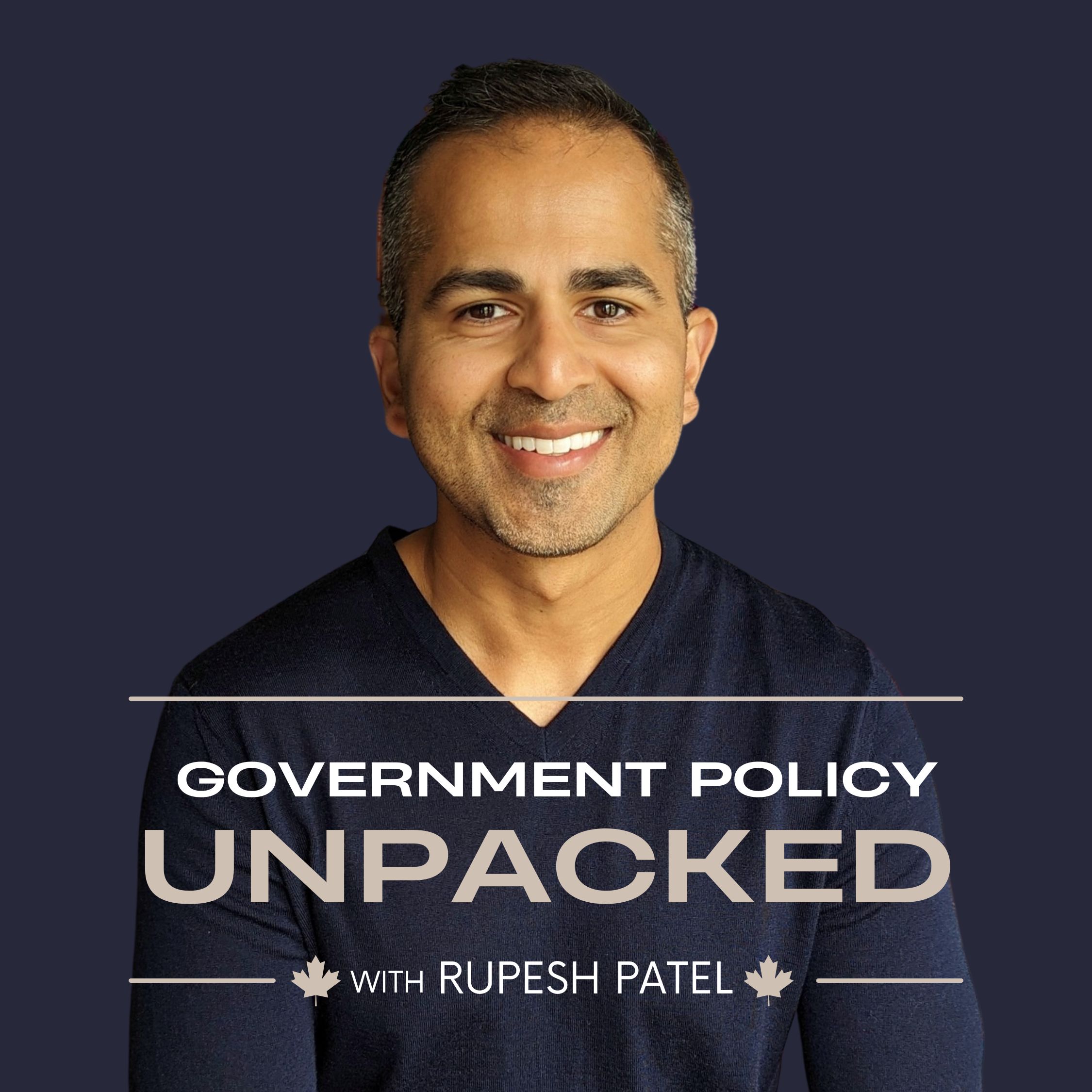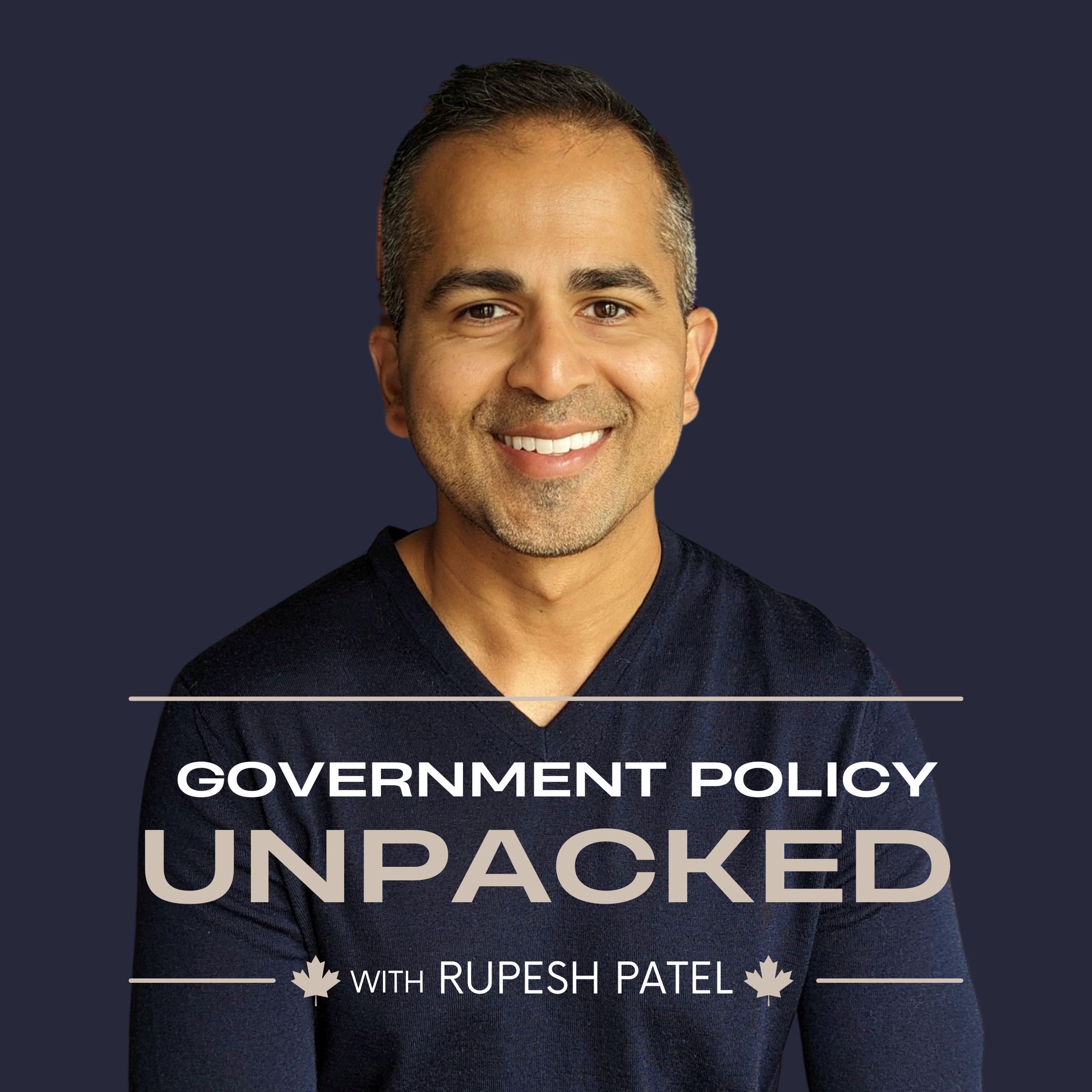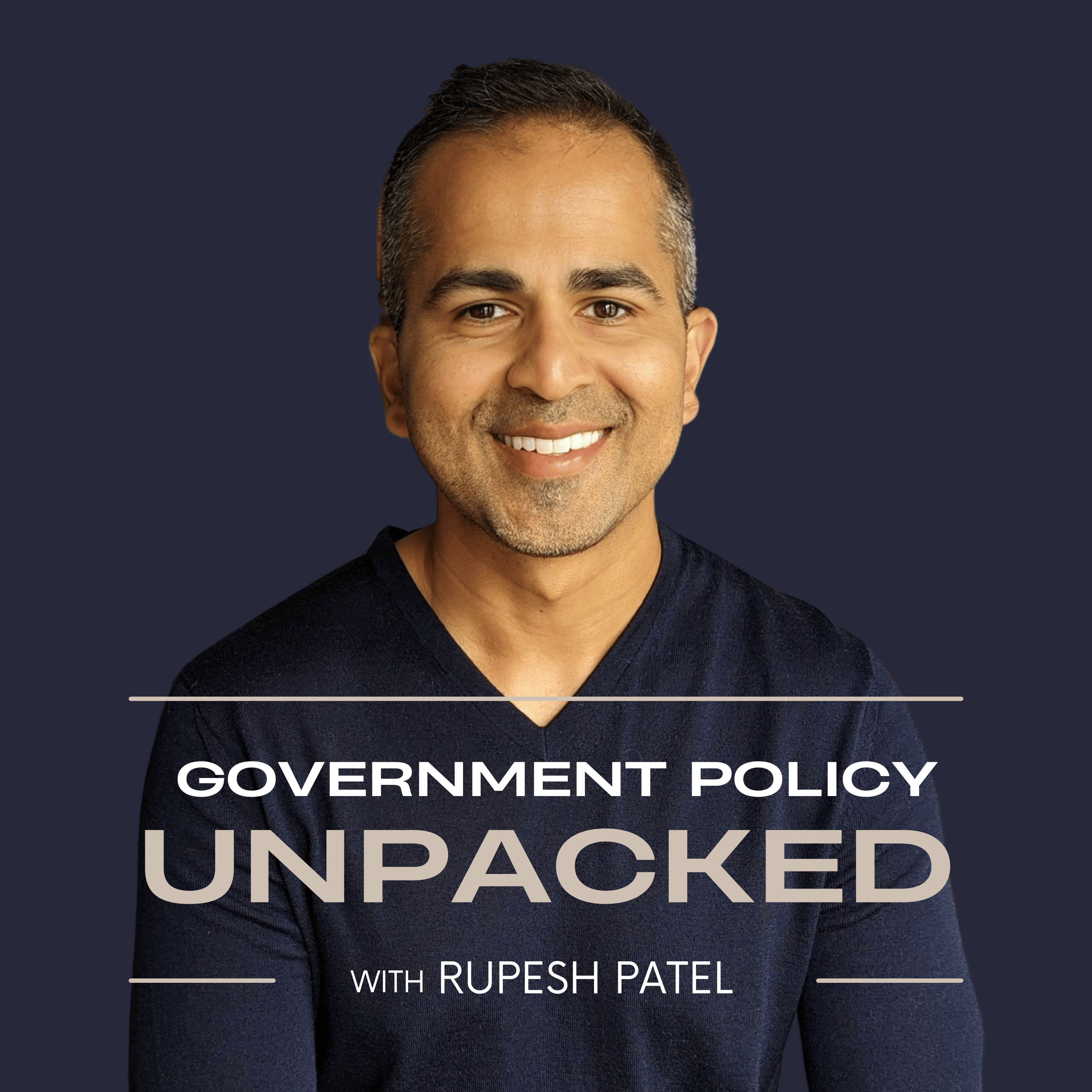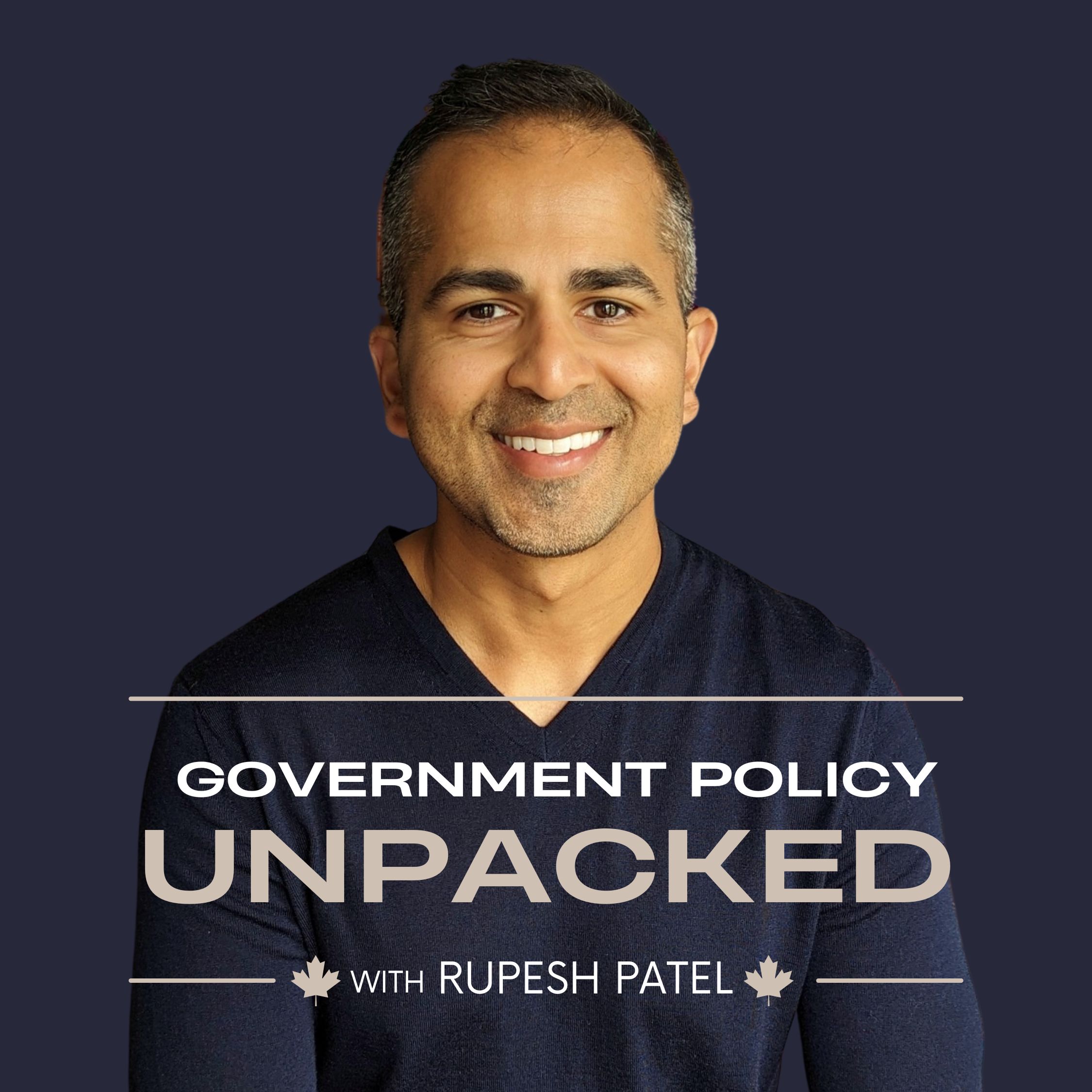Episode Transcript
Hey everyone, I’m Rupesh Patel, thanks for joining me.
I post episodes weekly and so if you care about how Canada and its provinces address some of our most pressing challenges, then make sure you follow the podcast. Check my previous episodes where I’ve unpacked the Trump tariffs, interprovincial trade barriers, how governments can helps us all buy Canadian food, and more.
In today’s episode, you’ll walk away with an understanding of
How there was a proposed West to East pipeline called “Energy East”, but that it was cancelled and why?.
Why There’s Renewed Interest due to rising energy security concerns, potential U.S. tariffs, and Europe’s need for alternative fuel sources have reignited discussions on a West-East pipeline.
And How Major Roadblocks Still Remain to Build such a pipeline.
Let’s Unpack This!
Let’s start with some history. Energy East was a proposed West to East oil pipeline that aimed to transport crude oil from Alberta to refineries and export terminals in Eastern Canada, particularly New Brunswick. Announced in 2013, the project promised economic benefits and energy independence, but it faced strong opposition due to environmental concerns and regulatory challenges. Ultimately, TransCanada now TC Energy withdrew from the project in 2017.
A major factor in Energy East’s cancellation was the approval of the Keystone XL pipeline by then-U.S. President Donald Trump. Keystone XL provided a direct and more profitable route for Alberta’s oil to reach international markets through the U.S., making Energy East less financially viable. Essentially, with an easier route available, energy companies lost interest in the Canadian pipeline project.
However, Keystone XL wasn’t the only reason Energy East was shelved. TransCanada, the company behind the project, also cited increasing regulatory demands. In 2017, the NEB announced stricter environmental review requirements, including the need to assess upstream and downstream emissions—essentially, the pollution from extracting, refining, and burning the oil that would flow through the pipeline. This added layer of scrutiny, along with economic uncertainties, made the project less attractive to investors. Facing mounting costs and prolonged delays, TransCanada decided to cancel Energy East.
Now, fast forward to today—geopolitical tensions, economic shifts, and energy security concerns have put Energy East back on the radar. Could this project be revived?
Before we dive into why Energy East is being reconsidered, you may be wondering what our existing pipeline network in Canada looks like.
As far as oil pipelines go that would bring crude oil to refineries and create the gasoline that fuels our cars, there’s no single pipeline that goes across the country. Instead we have two major oil pipelines: Trans Mountain and Enbridge Line 5.
Transmountain moves oil from Alberta to ports in the Lower Mainland of BC, which is then largely exported. Right now about half that oil goes to refineries in California and the other half goes to Asian markets.
Enbridge Line 5 is a West to East pipeline as it brings oil from Western Canada to refineries in Ontario and parts of the US. BUT this pipeline travels through some of the Northern States in America.
This last point is part of the reason why there’s renewed interest into building a true West to East pipeline that travels through Canada only.
With relations between Canada and America tense, and the added Trump tariff threats, relying on the US as our primary buyer of oil has become too risky. We are far too dependent on the US.
Enbridge Line 5 has been around since 1950, and the oil going through this line benefits both Americans and Canadians. So you wouldn’t think there would be any interest in shutting it down, but there’s been a long running dispute that Enbridge has trespassed over Indigenous lands within the US. Even without Trump’s threats there’s a risk to this oil pipeline.
I don’t want to mince words here. If Enbridge Line 5 goes down it would be a MAJOR disruption to gasoline supplies in Ontario and even Quebec.
So hopefully you’re seeing why a West to East pipeline affects you. All Canadians would benefit economically and knowing that there’s some degree of added energy independence.
So on one hand a West to East pipeline or Energy East could bring benefits, but there are also hurdles in getting it build and other things to consider.
Greg Ebel, the CEO of Enbridge, which was the company that was looking to build the Northern Gateway pipeline that would take oil from Alberta to the BC Northern Coast, recently highlighted that there would need to be some changes to Canadian policies in order for a major pipeline project to proceed. Things like legal guarantees for pipelines, the removal of various environmental policies such as Bill C-69 which is popularly known as the “No More Pipelines” At, and more funding for Indigenous participation.
Enbridge in particular is very hesitant to move forward with any project of this size and would want regulatory certainty, particularly as they lost hundreds of millions of dollars when the Northern Gateway project was cancelled.
Knowing this, it makes you wonder about the economic feasibility and is there even a company willing to build a West to East Pipeline? Remember TransCanada who are now TC Energy, they were the original company proposing to build Energy East, but they’ve since got rid of their pipelines business and are now TC Energy.
We did have a similar situation with the Transmountain Expansion project, and ultimately the government paid for it and now the Transmountain Crown Corporation manages it.
The economics may not make perfect sense, but if there’s a 25% tariff placed on Canadian oil then selling to the US could make a West-East pipeline more economically feasible.
There are also real environmental concerns associated with pipelines as they create risks to ecosystems, water sources, and Indigenous lands. And then what about the climate crisis and the fact that most of our oil is used to fuel our cars and trucks? Well we all know what’s happening with our transportation, it’s becoming electrified. So could building a West to East pipeline be a stranded asset in not too distant future?
Interesting note here is that public opinion of pipelines has generally been negative. But that too may be shifting. Remember the Transmountain Expansion pipeline, which was the pipeline the Liberal federal government bought. There was huge resistance, but opinions are starting to shift and some people are realizing that the investment may have been a prudent one over the long-term. The pipeline is certainly showing it’s worth right now, as it is allowing Canada to sell oil to markets other than the US.
With the looming Trump tariffs, public support for a West to East pipeline has risen, even in Quebec, who were largely opposed at the idea of Energy East when it was first proposed in 2017. We as Canadians are fuming at how we’re being treated by our closest ally. So much so, that recent polling suggests that nearly a third of Canadians view America as their “enemy”.
This brings me to the national security and sovereignty consideration which has never felt more real than today. When you have the American President threatening to annex Canada or use economic force, who knows how far Trump would be willing to go.
Remember that pipeline called Enbridge Line 5, well the oil flowing through their supplies refineries in Michigan and Ohio, before travelling to refineries in Ontario and Quebec. If the US disrupted the flow of that oil, it would essentially halt gasoline production and create a catastrophic shortage for Ontario and Quebec.
Creating an West-East pipeline helps address this risk as the pipeline would travel through Canada only supply refineries in Ontario and Quebec, and then allow for oil exports across the Atlantic to Europe.
Beyond transporting oil across the country there may be additional interest in expanding natural gas transport and exporting it to Europe. Europe’s natural gas supply has been hurt by the Russia-Ukraine conflict, so they’re looking to Canada.
I realize there’s a lot of considerations to balance here before you make your decision in your head about whether to support a West to East pipeline. All these things can be true and they are, so then it comes down to what’s your priority? Is it to protect Canada’s sovereignty and national security, well then we must protect our energy infrastructure and ensure that Canadians have a stable and secure supply of energy.
Outside of oil pipelines there are other more sustainable large energy projects that can also be considered such as creating a national grid that ties our electricity system across the country. That way you could have cheap and clean hydro from Quebec or Manitoba go to Alberta, which largely relies on natural gas electricity generation.
Or hydrogen is another fuel that is showing promise and Canada has the opportunity to be a hydrogen powerhouse, where pipelines could potentially transport this fuel both for our own consumption and even for exports.
So now that you have all the facts and analysis, what do you think? Should we building a West to East or Energy East pipeline in Canada? Or should we focus solely on the future and only consider green energy and clean tech? Leave a comment on your thoughts.
That’s another episode of Government Policy Unpacked, thank you for tuning in. If you found this episode valuable, be sure to follow, share it with your friends and family, and stay informed by tuning in next time. With the Ontario election upon us, I’m going to do a special episode for my friends in Ontario who may be struggling to decide on who to vote for. I’ll break down the most pressing issues you are likely facing and what each party pledges to do about it.
Ok until next time, stay engaged and hold your leaders accountable!



